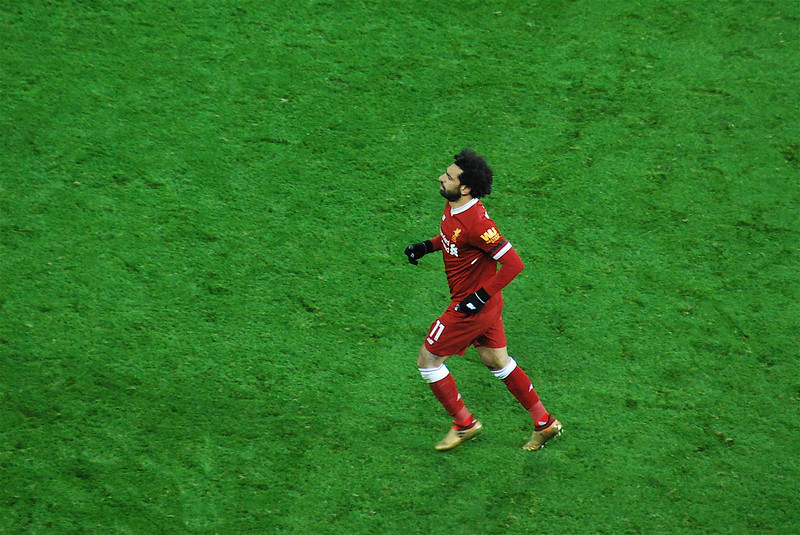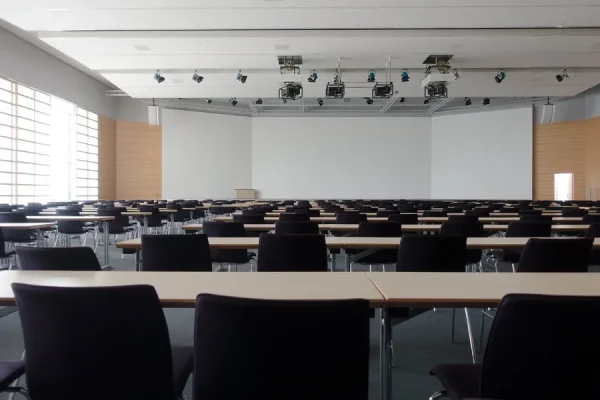Major Soccer Leagues Spark Intense Controversy over Fake Crowd Noises
https://flic.kr/p/24GkmRh
“Alexander-Arnold– he picks out Shaqiri. Shaqiri goes directly for Salah, and… wow! The most sumptuous, end-to-end goal you will ever see!”
These words of praise were spoken by commentator Peter Drury as he witnessed the talented footballer Mohamed Salah score the goal that was eventually pronounced the January 2021 Budweiser Goal of the Month. Due to COVID-19 league regulations, Salah celebrated his crafty finish in an empty, silent stadium. Why is it, then, that soccer fans watching from home heard an eruption of roaring cheers after he tucked the ball in the back of the net?
Worldwide, major soccer leagues have been tentatively allowed to proceed with their seasons amidst the worldwide pandemic, but the infectiousness of COVID-19 inhibits the possibility of a live audience– a factor that many consider to be a crucial aspect of the match atmosphere. In an attempt to satiate soccer fans who are used to watching games with active spectators, most leagues have introduced computer-generated crowd noises to accompany match footage. Fans watching from their living rooms hear thunderous cheers, boos, and hums of excitement; the players, on the other hand, hear only the echoes of the ball and the occasional shouts of other players.
The new feature has elicited mixed reactions from die-hard soccer fans, reflecting their diverse preferences. Bill Carter, media analyst for CNN, anticipated being annoyed by the artificial supplement. However, he was pleasantly surprised to find that the noises didn’t bother him at all:
“The noise is like a movie’s background music– there, but not front of mind.”
Many viewers, however, were far less ambivalent about the fake cheers. Andy Philips, 53, is a soccer fan from Kent, England who detests the noises for their disingenuity. He found himself unable to appreciate the fanfare, largely due to the simple truth that it was not real.
“I was aghast when I heard it for the first time, psychologically annoyed by how clearly fake it was.”
Philips is not alone in his criticisms; some soccer players dislike the noise as well. Maddie Montemurro, a player on the girls’ soccer team, admits that she would not want her game to be broadcast with fake crowd noises.
“It takes away from the genuine experience. I find it painfully obvious that there’s no real crowd there.”
She recognizes that an enthusiastic audience often improves the experience as a player on the field, but the noises are not audible to the players themselves. Despite the advanced programming utilized to make the simulation more realistic, she argues that the noises ultimately worsen the experience for people that appreciate the sport without the addition of artificial fanfare.
Montemurro’s complaints are not unfounded, as suggested by the teachings of the late Jean Baudrillard, French sociologist and philosopher. Baudrillard is recognized for introducing the concept of hyperreality in media, which he described as the inability to differentiate reality from simulation. He asserted that Western society has progressed so far into a state of hyperreality that media and basic interaction are dominated by images and simulations.
Ultimately, fans lock horns over a simple comparative question: what is more essential to the soccer-viewing experience– entertainment or authenticity?

Beat: Sports
Ava Checkan is a senior in the Humanities program. Outside of school, she plays club soccer for FC Virginia and she is committed to play...










